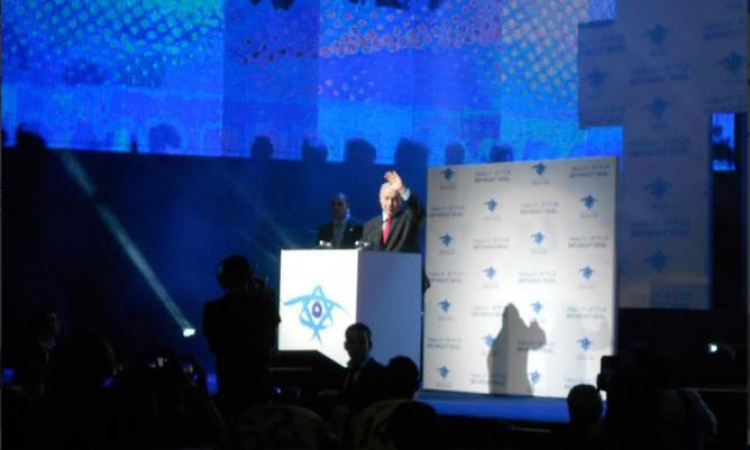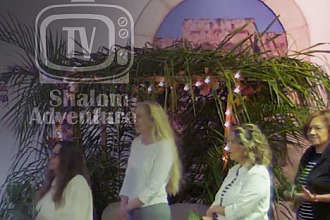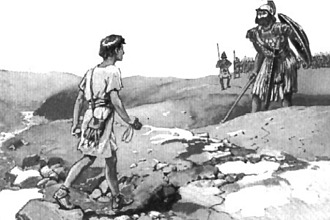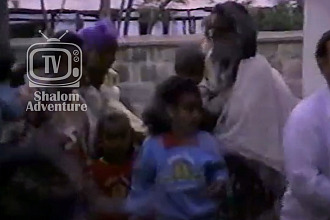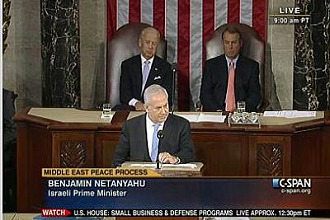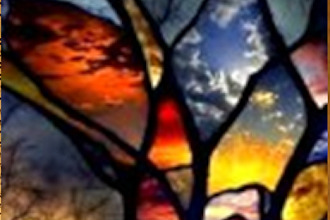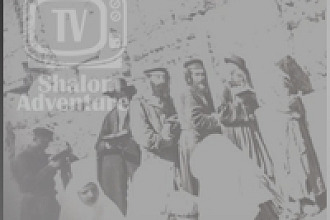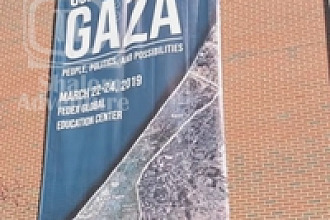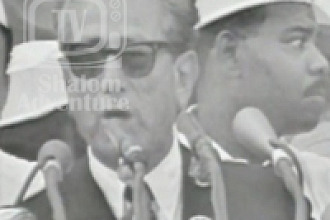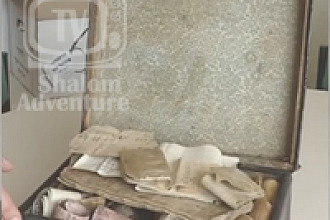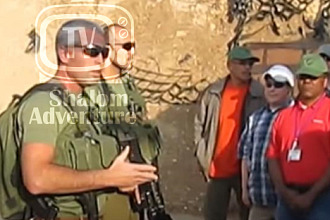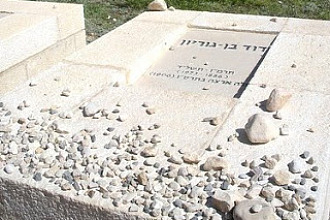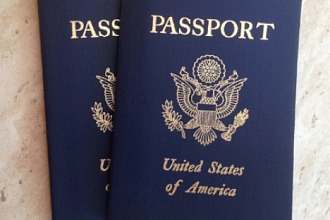A nutritionally, socially, and sleep deprived, intense, adrenaline-caffeine fueled week camped out in the University of Maryland campus studying process engineering and the like while wrapping up senior design projects, and temporarily ceasing most social life and communications with the outside world finally comes to a victorious close.
In a groggy, brain-dead post-finals haze, suitcases are packed for warmer weather than what is being left behind here. As the plane makes the final crossover from the Mediterranean into Israeli airspace and begins the final descent into Tel Aviv, lethargy dissipates, replaced by excitement and anticipation, not only because it is the last winter break ever before graduation in May, but because the adventure of a lifetime (so far) is about to unfold: Israel.
Taglit (“discovery”) Birthright Israel, founded in 1999 and funded by various organizations throughout the world as well as the Israeli government. This organization is dedicated to helping young Jewish adults from ages 18-26 see, touch, experience, and not be left to their imaginations when it comes to Zion. This ten day journey is not about naïve jetlagged youth sun-tanning amidst the cool, crisp, azure Mediterranean waters or skiing snowcapped Mount Hermon. One cannot and should not experience Israel without experiencing the past – following the footsteps of Torah characters, experiencing Galilee, or touching the Western Wall to name a few – but also connects participants with the present, the future, the reality. It is also the realizations of how the country is more than that portrayed by CNN, BBC, and similar media agencies (crime, violence, and graffiti can be found in any American city as well; feel safer in Jerusalem than many parts of St. Louis), and is more than just camels, donkeys, the three wise men, and deserts, but an eclectic kaleidoscope of ancient and contemporary, old and new, whether in music, architecture, technology, literature, art, culture, language, fashion, or worship, and in some ways, new that exceeds the innovation of the States. There are many dichotomies, such as the McDonalds abomination (kosher, of course) immediately adjacent to a hand-constructed wooden falafel and melon stand, and an affluent fashion store sharply contrasted with an adjacent ancient, ethnic jewelry and clothing bazaar being two examples noted in Jerusalem illustrating this mosaic of old and new.
The trip is not about solely recounting the sweat, blood, agony, and tears of those who walked this land before, but an introduction to the past, present, and future, that we share more modern day experiences than one would ever imagine down to cell phones, i-gizmos, education, families, friends, wanting the best possible future, prayers for peace in Jerusalem and elsewhere, the desire to live in peace, health, and safety while providing for ourselves and those we care about…and of course, futbol. Interaction with Israeli soldiers is not uncommon as part of the Birthright experience, allowing young people from around the world who are in the same chapter of life, wrapping up formal studies and forging forward into the uncharted waters of adulthood in a world that has dramatically, irreversibly changed since our childhoods and even adolescence, to transcend our differences, to meet and correspond as peers, as fellow world citizens, and possibly even as friends.
Where did you get to go, what did you get to see?
We got to see much of the country; the majority of our time was in Jerusalem, but we also spent a bit of time in Tel Aviv, in addition to the Golan Heights in the north where we got to see the borders with Syria and Lebanon, and the desert where we spent the night in a Bedouin tent.
We also were paired up with Israeli soldiers during part of the trip. I’m not sure if you are aware or not, but Israel has a compulsory draft for everyone once they turn 18 (both men and women). We got to spend a lot of time with the soldiers which gave us a great opportunity to see how they lived (which, aside from the military service, is strikingly similar to people in the US). One of the most memorable parts of the trip was explaining to the soldiers what “ratchet” meant.
What was the most memorable part of the trip?
It’s hard to say what the most memorable part of the trip was since the entire trip was memorable; Birthright does a good job of keeping participants moving and seeing a lot. Birthright has something called the mega event held for all the people in Israel on Birthright. Here we got to hear the Prime Minister speak which was pretty cool. We were also there when a former prime minister died, and it was cool seeing how the country reacted (as with the US when Reagan died, there was everything from people crying in the streets to people who weren’t even aware of his passing. But it did cause a huge mess in Jerusalem for his funeral).
What did you gain or learn from the trip?
It’s hard to say what exactly I “gained” or “learned” from the trip. A lot of people who go on the trip say they experience a “re-awakening” of their Jewish identity, and I will admit I did experience this some while on the trip. But this really did not last that long after I got back; I did not change my lifestyle in any way as to be more “religious,” nor did I feel a reason to. The most lasting experience of the trip is probably the relationships I developed with the soldiers; I still keep in touch with them, and even visited one earlier this year in Las Vegas.
If there was one thing that really stood out to me it was Israel’s relation with neighboring countries. I’m sure you know that Israel is surrounded by pretty hostile countries, as well as having to deal with attacks from Palestinians. Israel easily possess the power and technology to wipe out anyone of them, but they don’t, no matter how often they are attacked. Part of this is because Israel depends on its allies, and doing something that would tarnish Israel’s reputation in the international community could have undesirable consequences. Here’s an example of how this works: militants in the Gaza Strip fire rockets into Israel. They make these rockets using material from street signs as well as money that was provided to the strip for humanitarian reasons. Israel has the technology to shoot these rockets down, or at least provide warning to citizens so that they can go to a bomb shelter. Israel also possesses technology that they could track where the rockets were launched from, and send a rocket right back to that location. The thing is, militants fire rockets from the top of hospitals and schools, and they know that Israel will not fire back as it would devastate their international reputation. Israel is also stuck repairing the street signs that were turned into weapons, as well as continuing to provide monetary aid, as if they don’t, then they will look like bullies in the eyes of the international community.
But not only is there pressure from the international community on Israel, but the Israelis themselves do not seem to be looking for unnecessary violence. They have tried continuously to form peace with anyone, offering deals where Israel clearly would get the short end of the bargain, and do not wish for more than to be able to live their lives.
Think about this. Israel is constantly attacked yet does relatively little, and does not receive support, nor do they really desire to do much more. If the United States were attacked by another country, it’s pretty safe to say that country would be in ruins a few weeks later, and there would be few, if any, international powers who would get in our way. People would be lining up by the thousands to enlist in the military to fight that country. The last time the United States was attacked we dropped two atomic bombs on that country; it’s pretty safe to say that if the United States were in Israel’s situation, things would look quite different.
Comparing the US in World War II to Israel now may not be the best comparison, but my point is nevertheless the same. The most striking difference I found between Israel and the United States was how casual Israelis handled essentially being under constant attack and being surrounded by hostile countries, and this has been what has stuck with me the most from the trip.
Special thanks to James for the opportunity to correspond about the Holy Land, describe his Birthright experience, and share photos.
Photos used with permission.

